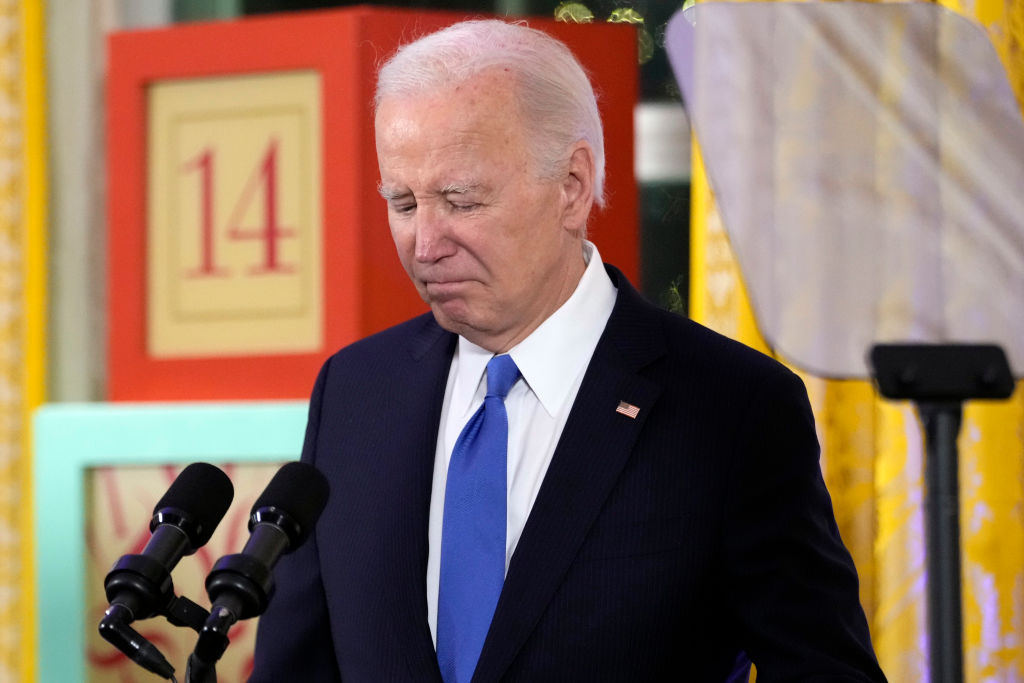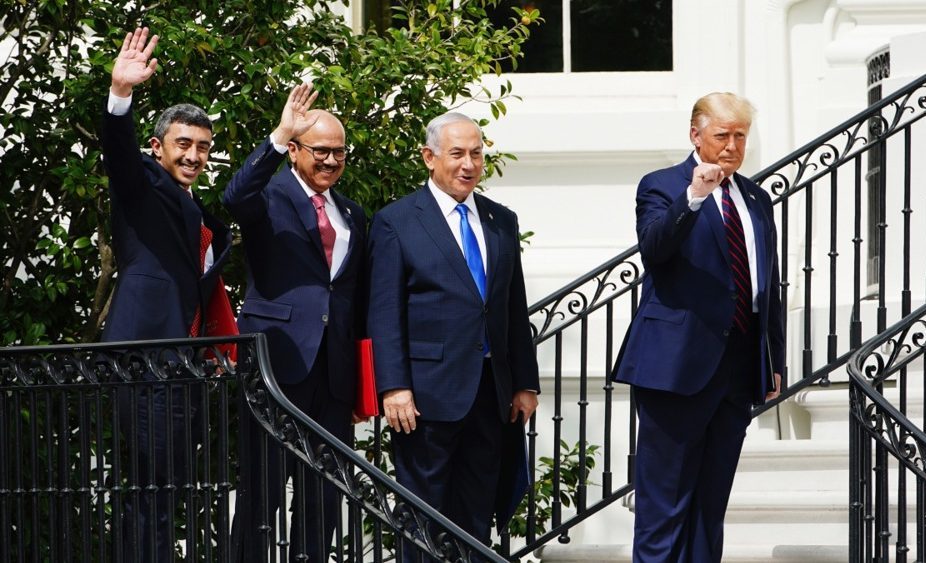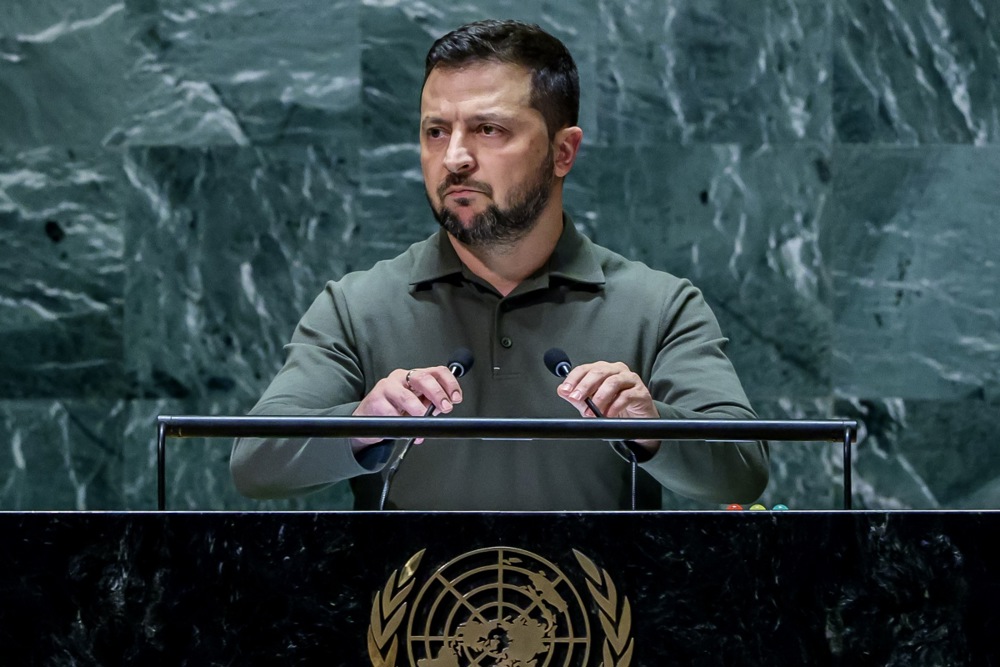Could Trump win this year’s presidential election? With Trump ahead of Biden in some polls, and the outcome of his numerous court battles a matter of speculation, a Trump win is certainly possible. President Trump considered taking the US out of NATO and his former security adviser John Bolton has said he would do so if he secures a second term. In 2020 Trump reportedly told EU Commission President Ursula von der Leyen that NATO was dead and that the US would never come to Europe’s aid if it was attacked. Trump maintains he could have brokered an “easy” peace deal “within 24 hours”, and the implication is that Ukraine would have had to surrender territory to Russia.
That would place in doubt US support for Ukraine and commitment to NATO, and it could even lead to US withdrawal from the alliance. Could NATO and the EU rally round and fill the US defence deficit?
The success of Ukraine’s resistance to Russian aggression has shown that a country with a population the size of Spain’s can hold its own against Russia’s conventional armed forces if it orders mass mobilisation and receives enough support from its allies. The US is the largest provider of military assistance to Ukraine, including vital military intelligence, and weapons like the Patriot missile system which has offered an effective umbrella against Russian air attack.
Russian war-fighting capability has been much reduced by the Ukraine war, and it estimated that it could take it a decade to recover its former state of readiness. Whatever the outcome of the Ukraine war, in terms of territorial gain or loss for Ukraine, a NATO deprived of US political commitment, or even minus US membership, might muster enough military capability to offer a credible conventional military deterrent to Russia, provided more countries make the sort of increases in military expenditure being made by Finland, Germany, Poland and Sweden.
But loss of the US nuclear umbrella would confront Europe with a military challenge that it would struggle to meet
Conventional capability is not the whole of the story. There is also the question of the nuclear arsenals of NATO and Russia, in terms of tactical and strategic weapons.
Russian doctrine holds that low-yield tactical (or battlefield) nuclear weapons are “a controllable part of a framework for achieving both battlefield results and war termination”.
The UK and France have strategic arsenals of submarine-launched nuclear missiles capable of deterring Russia from nuclear attacks on the UK and France. But nobody really believes that a tactical nuclear strike by Russia on, say, military bases or forces in the Baltic states or Poland, would attract nuclear strikes on Russian cities by the UK or France. The UK has no tactical nuclear weapons at all. France has a negligible capability for a graduated nuclear response, and anyway rejects the concept.
Without the United States and unless there were increases in the nuclear weapons capabilities of France and the UK, Europe would have no response in kind to Russian use of tactical nuclear weapons. That would be quite an Achilles heel.
Whether the US withdrew from NATO or not, a perception that America would not fight for Europe would shift the balance of power in favour of Russia
Whether a Trump Presidency went so far as withdrawing from NATO, or simply signalled a lack of commitment to fight for Europe, the result could be the same. In either event there could be a reduction in the 70,000+ US military personnel and their tactical nuclear weapons currently based in Europe.
If the conduct of President Trump led the Russian leadership to believe that the United States would not automatically react to defend NATO allies against Russian attack, the balance of military power in Europe would shift in favour of Russia and against NATO’s European allies, and some of those allies – such as the Baltic States – would feel at risk of Russian attack.
Could the EU fill the gap with a major defence role?
President Macron – a champion of strategic autonomy – would likely urge the EU to take on a larger defence role under French military leadership. The response of Member States is hard to predict, but EU funding could significantly increase the military capability of EU countries if it put modern weaponry in the hands of Member States most in need and least able to afford the outlay.
A European Defence Fund already exists, designed to foster collaboration by EU countries on developing capabilities and defence research, but its budget – €8 billion over 2021-2027 – is modest. By way of contrast, the US has contributed €44 billion to Ukraine since Russia’s invasion, and European NATO allies have contributed close to the same amount. This gives some measure of the scale of EU support to Member States’ capabilities that might be necessary to meet the threat from Russia.
For a hypothetical “European Military Support Fund” to put, say, modern air-defence systems, ground to ground missile systems, and armoured vehicles and tanks, in the hands of EU countries which needed them, would mean a multiannual plan and grants running into hundreds of billions of euros. This would in theory be achievable, if the political will was there.
A major difficulty would be securing unanimity in the EU. This requirement could be side-stepped. EU Member States, minus detractors could make a binding international agreement to finance a Military Support Fund financed in the same way as other off-budget EU military defence projects such as its own Defence Fund, or its Peace Facility, which has already financed military aid to Ukraine.
But the EU would struggle to fill the security gap left by a wavering US unless France extended its nuclear umbrella to cover the EU as a whole as well as its own territory. France could offer to station tactical nuclear weapons in other EU Member States, just as Russia has stationed tactical nuclear weapons in Belarus. But this scenario seems distinctly unlikely.
The response of NATO
NATO and the EU have close links, including the fact that most NATO Members are also EU Member States. Whatever the reaction of the EU to de facto or de jure US withdrawal from the alliance, there would be a reaction on the part of Europe’s NATO allies in their capacity as such. They would want to see the US return as soon as possible to its role as credible leader of the alliance and its security guarantor of last resort. They would be encouraged by some politicians in the United States denouncing President Trump’s disengagement from NATO and calling for a reversal of that policy.
Europe’s NATO allies would likely reiterate their NATO commitments of mutual self-defence, and declare they would welcome the return of the US to its rightful place in the alliance at any time.
NATO without the de facto or de jure guarantee of US military support might hold together in the short to medium term, but its long term future would be problematic, because of Russia’s overwhelming superiority in nuclear weapons.
That would make the European allies’ best option a political campaign to bring the US back into NATO. But if that option failed, they would find themselves with a militarily dominant and assertive Russia to contend with. In the latter event, plans for Ukraine and Moldova, and later Georgia, to join the EU would become problematic. Finland and the Baltics would be put under pressure to leave NATO, as would Sweden, assuming it would have joined NATO by then.
US withdrawal from NATO, in law or in fact, would create huge uncertainty, and could change the face of Europe. It is a sufficiently realistic possibility to justify planning at the highest level in NATO and the EU.
Derrick Wyatt KC is Emeritus Professor of Law at the University of Oxford





The Red Sea crisis: Britain and the United States are right to launch strikes against the Houthis